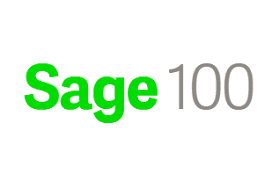
Understanding Microsoft Dynamics Suite of Solutions
Microsoft offers two ERP solutions considered to be the core of their ERP strategy: Microsoft Dynamics 365 Business Central and Microsoft Dynamics 365 Finance & Operations. Each serves a different segment of the market and will be the starting point for any ERP selection involving Microsoft.
Microsoft Dynamics 365 Business Central
Business Central fits in the small and midsized business (SMB) space. Typically, Business Central is most likely to fit the needs of businesses in the $5 million to $300 million revenue range. Business Central’s flexibility, partner network, and access to tools for low-code customization enable the solution to fit nicely across multiple industries.
From a financial perspective, Business Central has embedded functionality to handle all core accounting functions including the General Ledger, Fixed Assets, Accounts Payable, and Accounts Receivable. Additionally, customers have access to strong reporting capabilities with Financial Consolidations, Financial Reporting, and internal Cost Accounting. Business Central also offers some limited international accounting capabilities. Companies can operate in multiple currencies and languages while complying with localizations; however, operations are conducted in separate databases in single instances, and this separation makes it difficult for entities operating as separate companies to cross-share data.
Microsoft Dynamics 365 Finance & Operations (or Finance & Supply Chain Management)
Microsoft Dynamics 365 Finance & Operations was split into two separate products: Microsoft Dynamics 365 Finance and Microsoft Dynamics 365 Supply Chain Management. Dynamics 365 Finance is sold solely as an accounting solution, with Dynamics 365 Supply Chain Management meeting the requirements manufacturers need. When used together, many still refer to the solution as Microsoft Dynamics 365 F&O.
Finance, also known as Finance & Operations, offers the next step up from Business Central, generally catering to more complex and larger enterprises in the $200 million to $5 billion plus revenue range. Finance & Operations (F&O) has been known to perform best in the following industries:
- Manufacturing
- Project-Based Manufacturing
- Distribution
- Public Sector
- Retail
- Projects
However, other industries can also find success with F&O through various partner solutions.
F&O’s financial capabilities include everything offered by Business Central and a whole lot more. International or multi-entity businesses rely on the robust capabilities delivered in F&O that allow accountants to operate within a single database. Strong multi-currency and multi-entity functions, alongside the ability to create multiple charts of accounts and tie all data back into a single source of truth for reporting makes F&O the ideal solution for many enterprises.
Evaluating Key Manufacturing Requirements Across Microsoft Dynamics
Once you have determined your basic financial needs can be met by either Business Central or Finance & Operations, you can begin evaluating Microsoft’s fit for more specific, manufacturing requirements.
At a very high level, Business Central’s out-of-the-box functionality is well-designed for discrete manufacturing. But BC can be configured for other verticals and micro verticals with the right bolt-ons or partner solutions. Alternatively, F&O has more out-of-the-box for discrete, job shop, process, lean, and mixed mode manufacturing.
Using this as our foundation, we can dive deeper into Microsoft Dynamics for Manufacturing requirements.
Financial Data
Microsoft Dynamics 365 Business Central
Business Central benefits from strong reporting capabilities developed within the Dynamics 365 suite of applications. Built on the Azure platform, all Dynamics 365 applications have access to a network of integrated solutions within a single source of truth.
Azure’s groundbreaking infrastructure reduces data siloes and enables customers to pull financial data from across their entire technology stacks. Unfortunately, companies on Business Central may run into roadblocks if they are operating across multiple entities. Since companies are handled separately, data sharing can be difficult and will require a bit more effort or configuration to deliver.
Microsoft Dynamics 365 Finance
Out-of-the-Box, Finance’s reporting capabilities are almost identical to Business Central, except for when it comes to consolidating international data or data from multiple entities. Finance offers all data for multi-currency and localizations in a single database, making it much easier for companies to compile and report on ALL their data.
Manufacturing Functionality
Microsoft Dynamics 365 Business Central
Most of Business Central’s industry-specific functionality is delivered through Independent Software Vendors (ISVs). Business Central itself was not developed to meet deep industry needs and is targeted more at SMBs needing strong core financials.
Despite this, Business Central does offer some out-of-the-box functionality to support basic manufacturing requirements. In terms of Procurement, BC users can utilize Purchase Order Management capabilities while also leveraging general Vendor Management. For more complex needs, such as managing Request for Quotes, brokering contracts, or creating purchase order agreements, BC customers may need to implement an ISV solution.
When it comes to the Supply Chain, Business Central offers Warehouse and Inventory Management capabilities for companies with more general requirements, alongside Batch & Serial Tracking and Item Traceability. The caveat for Warehouse Management is that Business Central ONLY offers functionality around multi-warehouse and warehouse locations tracking. Any requirements beyond this, including Transportation Management, Quality Management, or full Warehouse Management, will need to be met by an ISV solution(s).
A couple of other points of importance are that Business Central does not offer capabilities to meet the needs of Process or Lean manufacturers. These industries have never really been the focus of Business Central.
Microsoft Dynamics 365 Finance & SCM
Finance & SCM are both much more robust than Business Central, offering adequate manufacturing capabilities straight out-of-the-box. However, Finance relies on Dynamics 365 Supply Chain Management and ISVs in some areas to provide for more complex manufacturing needs. Since the products were intertwined from the beginning, the adoption of Dynamics 365 SCM is seamless and adds value to the technology stack, without changing how users interact with the system.
Product Lifecycle Management
Within Dynamics 365 Supply Chain Management, Product Lifecycle Management (PLM) features are available to help facilitate collaboration among departments and manage product lifecycles. However, these features would not operate as a standalone product.
Those looking for more robust PLM capabilities rely on Microsoft’s ecosystem of third-party solutions. Partners like Bluestar PLM have worked closely with Microsoft to develop integrations and ensure the systems interact with one another relatively seamlessly. While needing a third-party solution is not a deal-breaker when it comes to software selection, it is still an important factor to consider as it may impact users.
Documents: Work Orders, BOMs, Manufacturing Instructions
Unlike Business Central, which only offers the capabilities for discrete manufacturers, Dynamics 365 Supply Chain Management adds the complexities needed for process manufacturing. This includes recipes alongside the capabilities available across Dynamics 365 for work order and BOMs.
For manufacturing instructions, Microsoft Dynamics 365 Supply Chain utilizes “routes and operations” to outline the processes for creating a product or a variant of said product. All information is stored in SCM as four elements defined by Microsoft here and is quoted below:
- Route – structure of product process.
- Operation – a named step in a route, such as Assembly.
- Operation Relation – operational properties of an operation, such as setup and run time, cost categories, consumption parameters, and resource requirements.
- Route Version – the route that is used to produce a product or product variant.
Manufacturing Execution
Finance alone does not offer any capabilities for Manufacturing Execution. While some manufacturers utilize the capabilities offered in Microsoft Dynamics 365 Supply Chain Management to manage machinery, equipment, and laborers, any manufacturer with advanced Manufacturing Execution System (MES) requirements will rely on third-party solutions with integrations built on Azure.
Microsoft outlined the capabilities available through an MES integration, including:
- Release production orders & production order status change business events
- Start production orders
- Report produced and scrapped quantity
- Report material consumption
- Report time consumed for the operation
- End production order
Find more information at https://learn.microsoft.com/en-us/dynamics365/supply-chain/production-control/mes-integration
Quality Control
Microsoft has developed robust Quality Management capabilities, enabling businesses with control over developing quality standards, monitoring and enhancing inspection processes, and ultimately gathering data. Once again, these capabilities are all housed within the Dynamics 365 Supply Chain Management solution and can be easily configured to meet your unique needs.
Regulatory Compliance
Manufacturers rely on their software solutions to help maintain compliance. From a financial perspective, Finance provides accountants with everything they need to meet accounting standards, domestically and internationally, with localizations offered for over 37 countries.
From a manufacturing perspective, SCM delivers tools for compliance through lot traceability, serial and batch tracking, Certificate of Analysis (COA), Certificate of Supply (CoS), Product Compliance, Product Safety Data Sheets, and more. Essentially, SCM can be configured to meet the basic regulatory compliance needs of almost any manufacturer.
Inventory & Warehouse Management
Microsoft Dynamics 365 Supply Chain Management offers Warehouse and Inventory Management out-of-the-box. The functionality in this solution is deeper than the capabilities offered by Business Central, making it easier for manufacturers to get up and running. In fact, the Warehouse Management is a true warehouse solution, not just disparate capabilities.
Summary
It is vital to consider all your options before jumping headfirst into an ERP selection. This guide serves as a starting point for any manufacturer considering Microsoft Dynamics 365 and can be used as an initial evaluation of fit. However, to ensure you make the right decision, we highly recommend conducting a full needs analysis and engaging with an advisor to fully evaluate all viable options. Ready to get started? Schedule a free consultation today!




